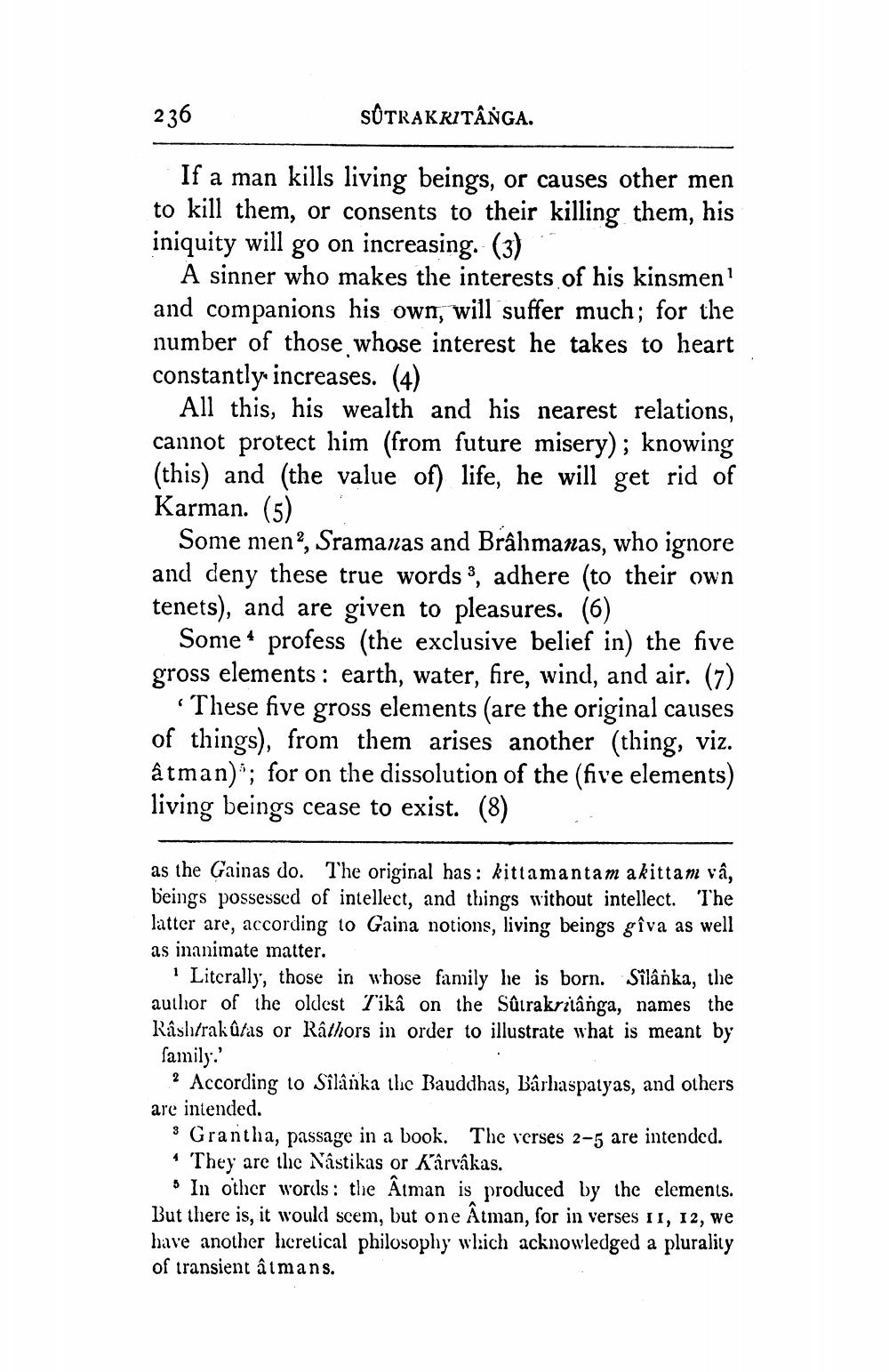________________
236
SÔTRAKRITÂNGA.
If a man kills living beings, or causes other men to kill them, or consents to their killing them, his iniquity will go on increasing. (3)
A sinner who makes the interests of his kinsmen? and companions his own, will suffer much; for the number of those whose interest he takes to heart constantly increases. (4)
All this, his wealth and his nearest relations, cannot protect him (from future misery); knowing (this) and (the value of) life, he will get rid of Karman. (5)
Some men?, Sramanas and Brâhmanas, who ignore and deny these true words 3, adhere (to their own tenets), and are given to pleasures. (6)
Some * profess (the exclusive belief in) the five gross elements : earth, water, fire, wind, and air. (7)
These five gross elements (are the original causes of things), from them arises another (thing, viz. âtman)"; for on the dissolution of the (five elements) living beings cease to exist. (8)
as the Gainas do. The original has: kittamantam a kittam vâ, beings possessed of intellect, and things without intellect. The latter are, according to Gaina notions, living beings gîva as well as inanimate matter.
Literally, those in whose family he is born. Silanka, the author of the oldest Tikä on the Sûtrakritânga, names the Râshtrakūtas or Rathors in order to illustrate what is meant by family:'
? According to Silanka tlic Bauddhas, Barhaspatyas, and others are intended. 3 Grantha, passage in a book. The verses 2-5 are intended.
They are thic Nâstikas or Karvakas.
In other words: the Âiman is produced by the elements. But there is, it would scem, but one Atman, for in verses II, 12, we have another heretical philosophy which acknowledged a plurality of transient âtmans.




